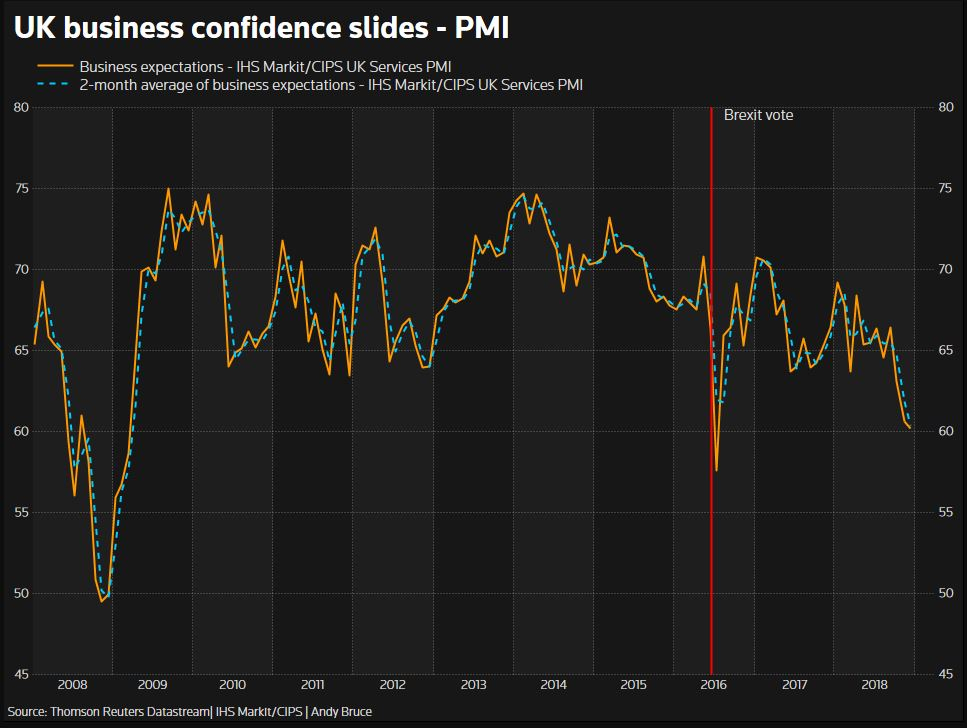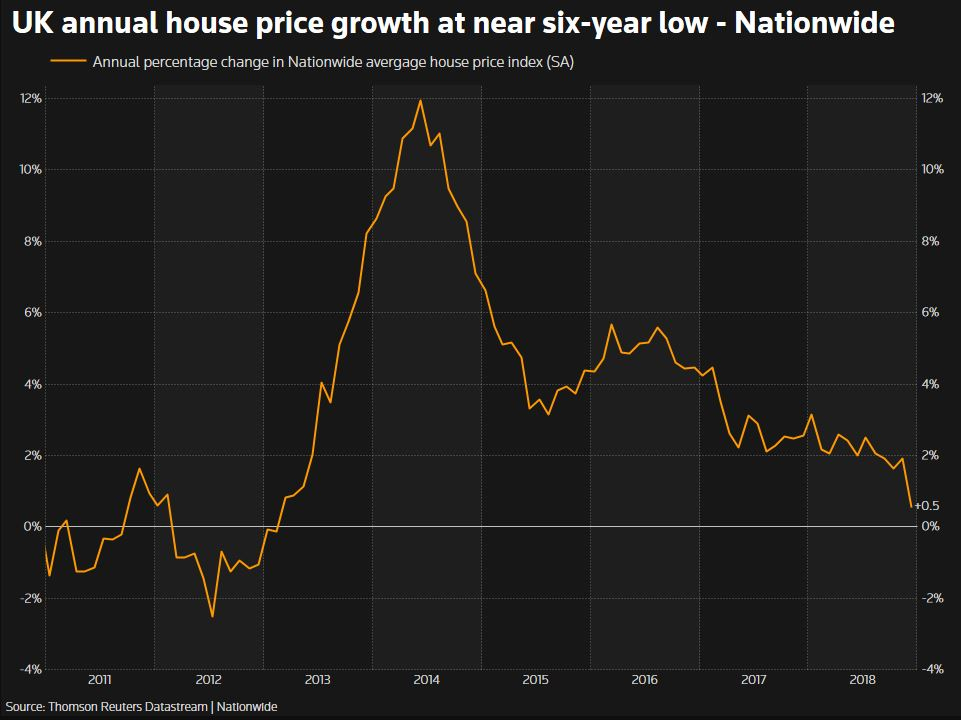
Business
18:44, 05-Jan-2019
Brexit worries slow UK growth to near standstill
Updated
18:05, 08-Jan-2019
CGTN

Britain’s economic growth slowed to a crawl at the end of 2018 and the housing market is stalling, according to data published on Friday, less than three months before Brexit.
A closely watched business survey indicated firms were growing more anxious, while figures from the Bank of England (BoE) and mortgage lender Nationwide painted a picture of households reining in spending.
Britain is due to leave the European Union on March 29. Possibility ranging from Britain leaving the EU without a deal to calls for a second referendum make what will actually happen on that day remains far from clear.
Friday's figures indicated that the disarray is starting to affect the economy.
Lending to consumers grew at its slowest pace in nearly four years in November and the number of mortgage approvals fell by far more than expected, the Bank said.
Nationwide said its house price index had grown in December at the weakest annual pace in nearly six years.
Overall, Britain's economy looks on track for quarterly growth of just 0.1 percent in the fourth quarter, data company IHS Markit estimated, based on its monthly purchasing managers' index (PMI) surveys of businesses.
November and December were the weakest two months for morale among services firms, which make up the bulk of the economy, since March 2009.

Business confidence slides ahead of Brexit/ Reuters Graph
Business confidence slides ahead of Brexit/ Reuters Graph
The PMI indicated that the business confidence was around the low point of Britain's last recession.
Lending slows
The Bank figures showed the annual growth
rate in unsecured consumer lending had slowed to 7.1 percent in November from
7.4 percent in October, the smallest increase since March 2015.
The data chimed with signals from many
retailers that consumers had reined in their spending in late 2018.
The number of mortgages approved for house purchase fell to 63,728 in November, the Bank said, the lowest figure since April.
Nationwide said house prices had fallen 0.7 percent from November, the biggest monthly fall since July 2012. Compared with a year earlier, prices were up just 0.5 percent compared with a 1.9 percent rise in the year to November.

U.K. house price growth at near six year low/ Reuters Graph
U.K. house price growth at near six year low/ Reuters Graph
Economist Samuel Tombs from the consultancy Pantheon Macroeconomics said the house price data amounted to “a bad end to the worst year since 2012”.
BoE Governor Mark Carney warned last month that in the event of a “disorderly” departure from the EU, which is not the central bank's base-case scenario, house prices could plunge 30 percent as part of a broader economic shock.
Source(s): Reuters

SITEMAP
Copyright © 2018 CGTN. Beijing ICP prepared NO.16065310-3
Copyright © 2018 CGTN. Beijing ICP prepared NO.16065310-3